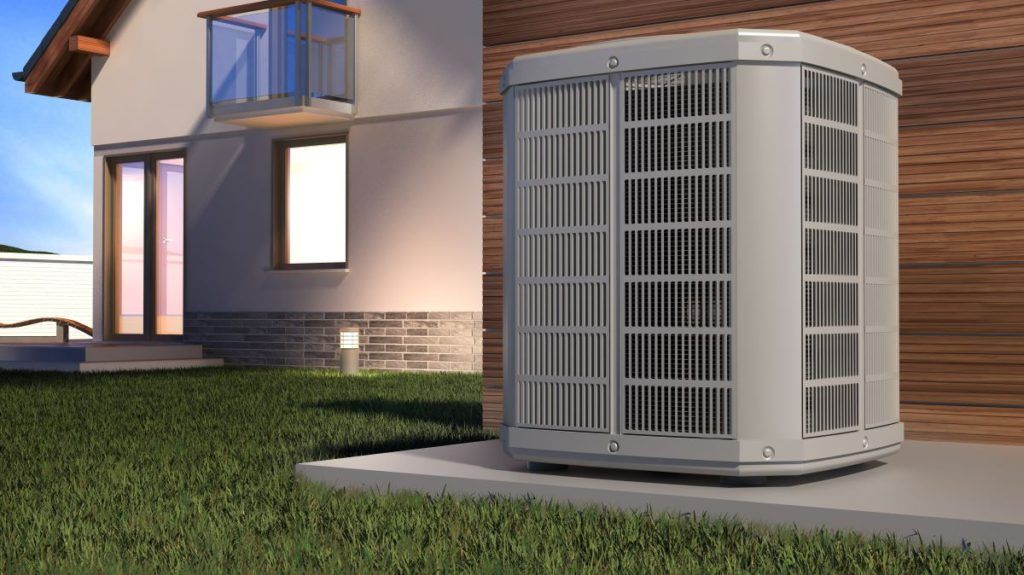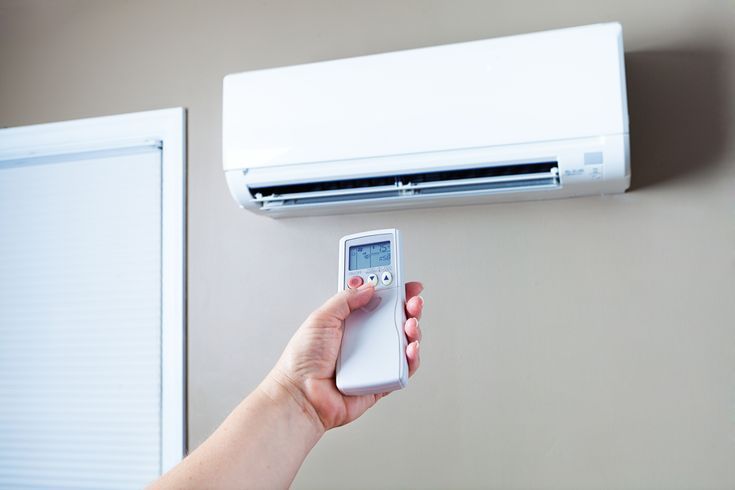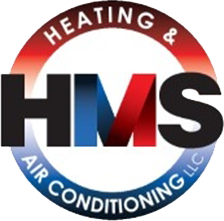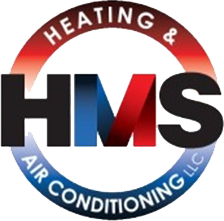Blog

Does your HVAC system seem mysterious to you? Don’t worry! We’re here to help with this great article that will give the low-down on how it works. HVAC stands for Heating, Ventilation, and Air Conditioning. It’s 3 systems in one (although not all homes have all 3 systems in place). There’s the Heating System, which is the furnace. It draws in fresh air through a filter, heats it and pushes that air and out into your house. Some homes have electric heat, others have heat pumps, and others have natural gas. There’s the Air Conditioning System, which is your air conditioner. It draws in fresh air through a filter, runs that air over cold coils, and then pushes that air out into your house. Some homes have an external air conditioning unit, others may have a window unit or mini-split that is not actually connected to your ventilation system (but just cools the air in the room), and some homes don’t have any air conditioning. There’s the Ventilation System, which includes your ductwork that runs through the walls or attic, delivering hot or cold air to each room. These 3 systems work together to make sure your home is as warm or as cool as you want. Some can be very complex (including special filters and programmable thermostats) and others can be very simple. So, what do you need to know about your system? First, it’s good to be familiar with where your furnace and air conditioner are located. Second, it’s good to know which circuit breakers power your furnace and air conditioner (so you can shut them off if necessary). Third, it’s good to know if there are filters that each system uses so that you can clean and/or replace them regularly. Here’s what to do with your system regularly: #1. Make sure your system runs from time to time. Use your sense of sight, smell, and hearing to detect anything unusual about your system. (Note: if you are starting your system up after a long time of not running, you may detect a very slight burning smell, which is probably a light accumulation of dust on the heating unit. As long as it disappears quickly, this is usually nothing to worry about, although you should call your local HVAC company if you are at all concerned. #2. Keep vents clear. There are intake vents where fresh air is drawn in, and exhaust vents where warmed or cooled air is pushed out. Keep these vents clear so you can create circulation throughout your home. #3. Have your ducts cleaned regularly. Dirty ducts will distribute dust and allergens throughout the house and plug up your filter. Clean ducts will move warmed or cooled air more freely. #4. Clean or replace your filters regularly (about every 1-3 months for maximum efficiency and the cleanest air). #5. Check for cold spots or hot spots. Your home should be comfortable but sometimes you may find that some areas of your home are colder or warmer than others. This can be fixed by running fans or by calling your local HVAC company to see what they recommend. #6. Have your local HVAC company service your HVAC system regularly and recommend ways to improve efficiency and cost savings. They probably have many tools and strategies that you weren’t even aware of, which can help you save money and breathe easier. Summary Your HVAC system may seem like a complicated system but it’s really quite simple. It warms or cools the air, and it moves the air around your house, all so you can keep your family safer and more comfortable. Get to know your system and learn how to keep it running smoothly and you’ll enjoy it for a long time to come.

Too Hot? Too Cold? What Is a Ductless Mini-Split and Why Might You Want One? It’s 2025 and you don’t have to be too hot or too cold in your home. You should be comfortable in whatever room of your house you want to be in. HVAC (heating, ventilation, and air conditioning) technology is all about indoor environmental comfort—the right temperatures at the right times and acceptable indoor air quality. There are a lot of options to improve the comfort in your home. You might be surprised to learn how you could benefit from a ductless mini-split, even if you already have a gas furnace and central air conditioning in your home. We’ll present a couple scenarios that might get you thinking about some possibilities that could improve the comfort in your home. What is a ductless mini-split? Ductless mini-splits are heating and cooling systems that allow you to control the temperatures in individual rooms or spaces (kind of like in motel rooms, but more advanced). They come in a variety of styles, but a mini-split is basically a rectangular heating and cooling unit that is mounted high on the wall. This indoor air-handling unit is hooked up to an outdoor compressor/condenser. Several mini-splits can be hooked up to one outdoor unit. Do you heat the whole house even though you spend most of the day in one room? You have a large house, but if you’re working in your home office all day, aren’t you heating (or cooling) your whole house just so you can be comfortable in the office? Imagine the energy you’d save by using a ductless mini-split that would just heat (or cool) your office area. In many other homes, a parent will spend much of the day in the kitchen and living room with a toddler or infant—how much money could you save by heating (or cooling) that main part of the house instead of the upstairs bedrooms and basement too? Are you converting a single-family home into two residential units for rental income? Many people buy single family homes and convert them into two rental units to double the potential rental income. One of the perpetual problems of converting a single-family home into two residential units is the noise factor—how much you can hear the other residents. Even when soundproofing is applied to the ceilings (or walls), noise and sounds are broadcast through the ductwork of the house. But if you reconfigure the ducts and furnace for the larger part of the house and install ductless mini-splits for the other part of the house you’ll make this problem disappear. Plus, you won’t have tenants arguing over what temperature to set the one thermostat at. Conclusion An HVAC expert from your preferred HVAC Company could tell you all about the benefits of installing a ductless mini-split to heat (and cool) one room of your house, a couple rooms or even a sub-divided part of the house.

Do you close some of your vents to get more heat to the rooms that need it? Are you trying to save money by only heating the parts of the house where you’re active? Many people close the vents in rooms they do not use and close the doors to those rooms. So, you’re not alone if you believe that closing vents can save you money, heat the other parts of your house better and cause your system to run less. Why closing vents seems to make sense If you’re not using a spare bedroom why not close the vent, save money and redirect the heat to the other rooms? Most HVAC system registers (vents) even have a built-in lever that allows you to adjust the louvres behind the grille, change the direction of the air flow, or shut off the air flow altogether. What actually happens when you close vents Closing vents and closing doors doesn’t prevent air movement, it just interferes with it. The closed off room will be under pressure and if it has a return air duct it will pull in cold air from leaks around windows. The warm air trying to push up through the closed vent will create pressure as it backs up and it may leak out of ducts that are not sealed properly or force an opening in the duct work, leaking warm air into the floor cavity or back down into the basement. Meanwhile your system will continue trying to push air to all the vents. Newer high efficiency systems will detect the increased air pressure, step up the fan speed and attempt to push through that pressure (and lessen their efficiency). Older systems will continue running like normal but operating under this increased pressure will strain and wear the system motor. The pressure can damage the duct work or, worse still, if the pressure gets high enough it will damage the system. Your system depends on good air flow to operate properly. If it does not have enough air being returned to it and then taking the heat away from it, the heat exchanger could crack and this would result in carbon monoxide leaking into your home, circulating through your vents. In addition to the huge health risk, your system would also need to be replaced. Conclusion It’s not a good idea to close vents, but if you’re determined to shut off the heat to a room, contact an HVAC technician from your HVAC Company. They will tell you what can be done safely and what adjustments can be made to the operation of your system. Alterations you make on your own won’t be covered under the warranty of your HVAC system and could cause serious damage to your HVAC system. A professional technician will ensure that your system is working well. Often times an HVAC technician can help you get your system operating more efficiently (and saving you money) in ways that do not involve closing vents.

Chances are, you don’t give much thought to the system that warms your home in the winter and cools your home in the summer. And why should you? You leave it to the experts to take care of it for you; meanwhile, you focus on more important things in your life—like family, work, etc. As long as everything runs normally, you shouldn’t have to give it a second thought; just sit back and enjoy the temperature and air flow as everything works as it should in the background. But what happens if it doesn’t work as it should? You don’t want to get cold or uncomfortable as you discover it doesn’t work. And if there’s an emergency, you want to be able to act fast to deal with it. So, here are some tips to help you be “HVAC aware” this month… to give your HVAC system a little bit of love so it will continue to keep you and your family comfortable. Tip #1. Let’s start with the word HVAC itself: It stands for Heating, Ventilation, and Air Conditioning, and it’s the name given to the entire system that heats and cools your home. It often includes your furnace, your air conditioning unit, as well as the ductwork that runs through your walls. Tip #2. Find out what kind of heating system you have. Is it electric? Oil? Natural gas? (Note: even systems that run on oil and natural gas may also be plugged in to your home’s electrical system.) You should also know the brand, the year it was installed, and the company that installed it. Keep this information on the HVAC system but also keep it handy in a drawer somewhere else so that you can make a quick call to that company if you ever need more information in a hurry. Tip #3. Find out how to turn your furnace and air conditioner off and on, including any switches ON the system itself as well as how to turn it on and off at your circuit panel. If there’s ever a fire, you’ll want to be able to turn off your HVAC system at the circuit panel if you can’t get to the system itself. Tip #4. If your system is fed from a municipal supply (such as natural gas), learn where those pipes are and if there is a place to turn off the supply. If there’s ever a leak, know how to turn it off fast. Tip #5. Look for exhaust pipes. Depending on your system, your HVAC system might use a chimney or an exhaust pipe. Keep these free from blockages. For example, make sure that leaves or snow don’t block up the exhaust pipe, and make sure that small animals don’t get into your chimney. Tip #6. Even though you can’t see most of the ductwork, you can see the vents! Know where they are and see which vents blow OUT warm (or cool) air, and which vents take in air to circulate it back to the system. Keep an eye on these vents and keep them free from being blocked by furniture. Tip #7. Know where the filters are. Different systems use filters in different ways. Those filters help to remove particles from the air that you would otherwise breathe. Clean those filters regularly and replace them regularly too. Tip #8. Use all your senses to monitor your HVAC system. If it starts to sound unusual or smell unusual, take action right away. Turn it off and call an expert HVAC company and get their help. Summary Your HVAC system is an important system in your home and it works 24/7 to keep your family safe and comfortable. But if it suddenly stops working the way you want, your February can very quickly go from warm and cozy to cold! Use these tips to be HVAC aware this month and throughout the year.

With the New Year here, you are probably making New Year’s resolutions about your health and career. But this is also a good time to make some New Year’s resolutions about your home’s HVAC system. … After all, your HVAC system influences just how comfortable you and your family are all year ‘round, so doesn’t it make sense to set some goals that will contribute to your family’s comfort? Resolution #1 - Eliminate The Mystery An HVAC system is complex and should only be maintained by a licensed professional. However, that doesn’t mean that you can ignore it completely. Get to know the various parts of your HVAC system. Understand what model it is and which brand it is. Find out how to turn it off if needed and which circuits on your circuit board are connected to your system. Be sure to check if it has been serviced before, by whom and when. Keep that information handy so you can call them if there is ever an issue that you need them to resolve. Resolution #2 - Get It Serviced Your HVAC system should be serviced regularly by a licensed professional. The exact frequency might vary by the brand or model but a good rule of thumb is to have someone look at your HVAC system twice a year. So why not write it into your calendar right now while you’re planning other parts of your year? Simply write in the name and contact information of your friendly HVAC professional, then call them up and book it. Resolution #3 - Clean Or Replace Your Filters Your HVAC system contributes to easy breathing… when the filters are clean. But when they are dirty? More dirty air blows through your home and can cause allergies. As well, a dirty filter makes your HVAC system less efficient (and more costly to run). So, set an appointment with yourself in your calendar to clean your filter every month and replace it every 3 months. You’ll breathe easier! Resolution #4 - Have Your Ducts Cleaned Your home’s ductwork runs through your walls so you probably don’t think about it… but it delivers fresh air to the various rooms of your home. You probably don’t realize that your ducts can become very dusty and dirty, which will contribute to even worse allergies (even if your filter has been cleaned!) Therefore, have your ducts cleaned twice a year so you can breathe easier all year ‘round. In fact, why not schedule that into your calendar right now, too? Simply write 2 scheduled reminders—one for the spring and one for the fall—to have a duct cleaning company clean up your ducts. Summary Eat right. Exercise. Take up yoga. Walk the dog more often. Those are common New Year’s resolutions. But don’t forget about these HVAC resolutions that you can set for your life, which will have a noticeable impact on your health, comfort, safety, and happiness as you enjoy your home throughout the year. Commit to these resolutions right now, while you are reading this, and it will be the best HVAC year of your life!

Oh, the weather outside is frightful… … but inside, your HVAC system keeps things warm and comfortable! At this time of year, your HVAC system works double-time to make sure you and your family (and all your festive visitors) are warm and comfortable. To keep your HVAC system functioning in peak condition, make sure you read these tips… Tip #1. Always make sure your HVAC unit is well maintained. Instead of waiting for something to break and then dealing with the repairs (and how cold it can get in the meantime), invest in regular seasonal maintenance check-ups. This will alert you to any potential problems before they happen. Tip #2. Clean your HVAC filter. Your HVAC filter traps dirt and debris to keep it from blowing into your home. But, the more that builds up in the filter, the harder your HVAC system has to work! Keep your system running efficiently by cleaning and replacing your filter regularly. Tip #3. Have your fan and coils cleaned regularly, ideally before it gets too cold outside. When the furnace turns on, the dust on these components could burn off and you may smell a bit of smoke. If it happens briefly, it’s usually fine; however, if the smell persists, contact a licensed HVAC professional. Tip #4. If your HVAC fresh air and exhaust pipes are near ground level, make sure they are clear and not blocked by snow or leaves. Tip #5. Regularly check all your vents to make sure they aren’t blocked. Vents that are blocked could make your furnace work even harder to heat your home, they could leave cold spots in your home, or they could cause damage to whatever is blocking the vent. Tip #6. At this time of year, when windows are closed and furnaces start to run, you may notice an increase in allergies as the warm air in the ducts starts to move dust that has been settled for a while. Consider having your ducts cleaned to keep allergies to a minimum. Tip #7. Running your HVAC system can be costly! Installing a thermostat that automatically adjusts the temperature based on a pre-determined schedule will allow you to lower the temperature slightly when everyone is asleep or nobody is home and raise the temperature when everyone is at home. (Note: avoid shutting off your HVAC system for very long during the winter, especially if your temperatures drop below freezing—this could lead to frozen pipes that burst and cause a mess!) Summary This holiday season, the last thing you want to do is worry about whether you are warm and comfortable. Wouldn’t you rather sip hot chocolate in the comfort of a warm home? Of course you would! These 7 tips will help ensure that this festive season remains a comfortable one for you and your family.

Fall is here… Winter is coming… will you be warm and comfortable through it all? A properly running HVAC system can mean the difference between comfort and discomfort in your home. After all, you invested in an HVAC system so the following article will help you maximize your investment. You can enjoy a warm, worry-free home through the fall and winter when you use these tips to maintain your HVAC system. Locate all the vent and air exchange covers in your home and ensure they are free of dust and debris and are not blocked by furniture or large objects. This will help to keep dust from blowing around your home and also make sure proper air flow and consistent heat to each room. Clean and/or replace your HVAC filters regularly (as often as is recommended by the furnace manufacturer or your HVAC installing expert). Have your ducts cleaned regularly. Before winter is a great time to have them cleaned because the windows will be closed for winter so you won’t get new dust and debris coming in. Vacuum your home around the same time to eliminate any dust that is currently outside of the ductwork, to keep it from cycling back in. Test your HVAC system before you need it. Run your system and listen for unusual sounds or smells. You’ll want to do this for two reasons. First, you might notice a very slight burning smell as a small amount of dust burns off of the heating unit, so it’s nice to be able to open the windows and air that out. (Note: the burning smell should disappear quickly. If it persists or is very strong, shut your HVAC unit down and call an HVAC expert right away.) Second, testing your HVAC system before you need it means that if there is a problem, you can get it fixed right away instead of being uncomfortably cold while the system is being repaired! If you try running your HVAC system and it doesn’t turn on, look at the following things first: Is your HVAC unit plugged in? Did you check the circuit breakers to make sure they are in the correct position? Do the batteries need to be changed in your thermostat? These 3 simple steps could be the difference between an HVAC system that works and one that doesn’t. If your HVAC unit has pipes that connect to the outside of your house (such as exhaust and fresh air intake pipes), make sure they are clear of debris and not blocked by anything. If you need to call an HVAC professional, check the brand name and model number of your HVAC unit over the phone. This will help them understand the situation better even before they arrive at your home. Summary With the colder weather on its way, it’s important to make sure that your home is safe and comfortable for your family. That means making sure your HVAC system is running the way you want it to run. Use these tips and ideas to help you have a more comfortable home for your family.

Your home is an investment, and your home’s HVAC system is an investment into the comfort and safety of your family. A well-maintained HVAC system is an important part of your home. Homeowners who take the time to care for their HVAC systems will get a long life out of their systems and save money and time in the long run while enjoying a comfortable home year ‘round. Use these tips to help you: #1. Clean the fan blades and coils near the end of fall. Falling leaves from trees can clog up your air conditioning unit’s fan and coils so clear it out after the leaves have fallen, and don’t let too many leaves pile up around the unit. Pay particular attention to grass clippings while mowing and when you use a leaf blower. Note: make sure to turn off the power before cleaning the unit. #2. Have your HVAC system serviced twice per year, in the fall and the spring. This type if preventative maintenance is highly necessary to ward off any expensive troubles from coming your way. #3. As the temperature outside drops, remember to turn off your outdoor condenser unit. This means that you should turn it off to prevent damage if the weather falls under 60 degrees Fahrenheit. This will ensure your system works well each year, which could save you quite a bit in repair costs. #4. Equipping your home with a programmable thermostat can be an excellent way to cut utility costs. In fact, you can save as much as 10 percent on both heating and cooling when you turn your thermostat down by 10-15 percent for at least 8 hours daily. Some can even be controlled from a computer or smartphone. #5. Clean your ducts and filters. As temperatures drop, HVAC systems will run and can burn off the dust that has accumulated over the summer. To avoid a smoky smell, and to avoid blowing dust around your home, have your ducts and filters cleaned. #6. Walk around your home and check to make sure there is no furniture blocking the vents. Not only do blocked vents make your HVAC system work unnecessarily harder, it can also be dangerous to have something sitting on a hot vent for too long! It is important that you take care of your unit. When HVAC systems fail, they can be costly to repair. But these tips can help to prolong the life of your HVAC unit and keep your family safe and comfortable for many years.

Do people in your home fight over the thermostat setting? In many homes, someone is too hot, someone is too cold and no one is happy. Even in a home with adequate central air conditioning, mom or dad may find the temperature to be fine in the kitchen or living room, but then upstairs, their son is home from college wanting to study at his desk, but he can’t because the desk surface is hot enough to fry an egg! This is a house that might benefit from a zoned HVAC system. What is a zoned HVAC system? A zoned HVAC (Heating, Ventilation and Air Conditioning) system allows the homeowner to set different temperatures in different parts or “zones” of the house. Rather than one thermostat for the entire house, each zone can be regulated with its own thermostat. A zone can be as small as one room or as large as an entire level of the house or an addition to the house. How does zoning work? In a home with an existing forced air heating and cooling system (and one thermostat), it may be possible to install an automatic damper system into the HVAC ductwork that would divide the home into zones. The better way to set up a zoned HVAC system is with ductless mini-split units. These units come in a variety of styles and models, but basically it’s a rectangular heating and cooling unit that is mounted high on the wall (or into the ceiling). That’s actually the first part, the indoor air-handling unit (evaporator). It’s hooked up to the second part, an outdoor compressor/condenser. Several of the indoor units can be hooked up to one outdoor unit. Each indoor unit is controlled with its own thermostat. Reasons why you might want a zoned HVAC system Ductless mini-splits are a great solution for a newly constructed house, but also a good retrofit for houses with non-ducted heating systems (like hot water heat or electric heating). They also work well for new additions to a house that lack ductwork or separate buildings like a garage or shed converted into offices or hobby rooms. Why might you want to look into installing some ductless mini-splits? 1. To solve the multi-level home heating/cooling problem (described above). 2. To balance the temperature in homes where one side of the house gets more solar heat than the other side. 3. To heat/cool only the parts of the home in use. (Why heat/cool a huge house if you’re mostly only using a few rooms?) 4. To get heating/cooling in new house additions / separate buildings without installing ductwork. Summary To find out how a zoned HVAC system could work in your home, call a heating and cooling expert at your preferred HVAC Company. With this surprisingly simple solution, you'll never fight over the thermostat in your home again!

